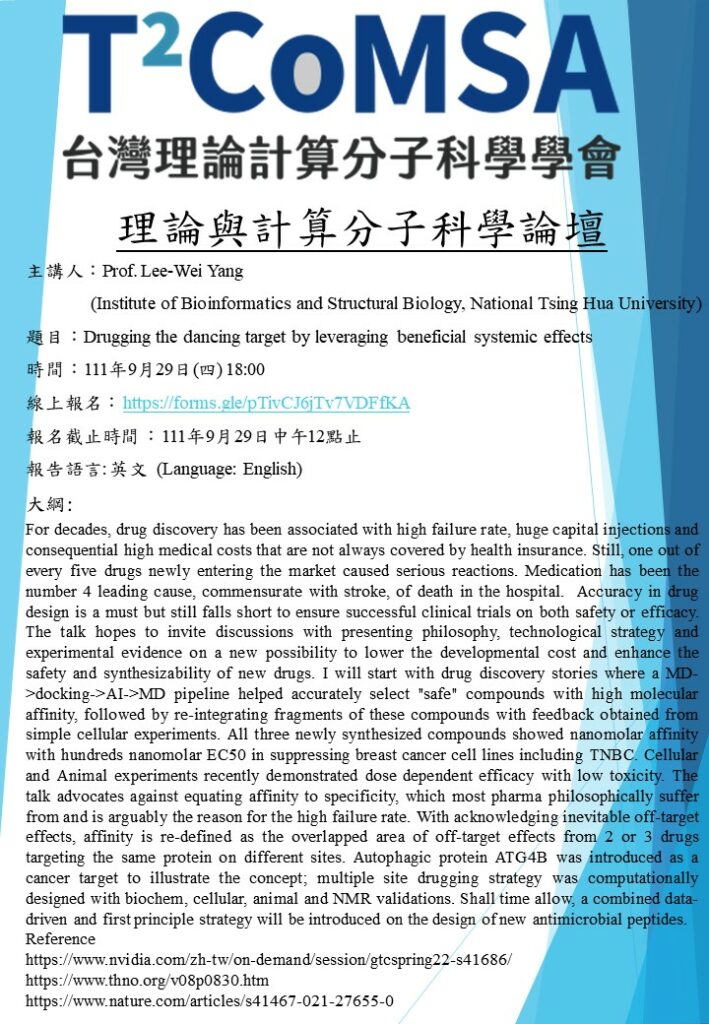主講人:Prof. Lee-Wei Yang (Institute of Bioinformatics and Structural Biology, National Tsing Hua University)
題目:Drugging the dancing target by leveraging beneficial systemic effects
時間:111年9月29日(四) 18:00
報名網址: https://forms.gle/PyynQugak4dqb5N38
報名截止時間 :111年9月29日中午12點止
報告語言: 英語
大綱:
For decades, drug discovery has been associated with high failure rate, huge capital injections and consequential high medical costs that are not always covered by health insurance. Still, one out of every five drugs newly entering the market caused serious reactions. Medication has been the number 4 leading cause, commensurate with stroke, of death in the hospital. Accuracy in drug design is a must but still falls short to ensure successful clinical trials on both safety or efficacy. The talk hopes to invite discussions with presenting philosophy, technological strategy and experimental evidence on a new possibility to lower the developmental cost and enhance the safety and synthesizability of new drugs. I will start with drug discovery stories where a MD->docking->AI->MD pipeline helped accurately select “safe” compounds with high molecular affinity, followed by re-integrating fragments of these compounds with feedback obtained from simple cellular experiments. All three newly synthesized compounds showed nanomolar affinity with hundreds nanomolar EC50 in suppressing breast cancer cell lines including TNBC. Cellular and Animal experiments recently demonstrated dose dependent efficacy with low toxicity. The talk advocates against equating affinity to specificity, which most pharma philosophically suffer from and is arguably the reason for the high failure rate. With acknowledging inevitable off-target effects, affinity is re-defined as the overlapped area of off-target effects from 2 or 3 drugs targeting the same protein on different sites. Autophagic protein ATG4B was introduced as a cancer target to illustrate the concept; multiple site drugging strategy was computationally designed with biochem, cellular, animal and NMR validations. Shall time allow, a combined data-driven and first principle strategy will be introduced on the design of new antimicrobial peptides.
Reference
https://www.nature.com/articles/s41467-021-27655-0
https://www.thno.org/v08p0830.htm
https://www.nvidia.com/……/session/gtcspring22-s41686/

